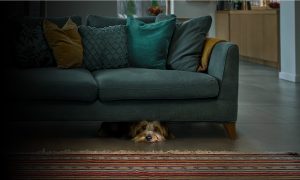February 21, 2025
by
Harmony Animal Hospital
June 21, 2023
by
Harmony Animal Hospital
May 31, 2022
by
Harmony Animal Hospital
 More pets get lost around the 4th of July than any other time of year due to fireworks noise
More pets get lost around the 4th of July than any other time of year due to fireworks noise
- Plan ahead and make sure your pet is microchipped. Between the months June and November we always have our microchips at a discounted price, so take advantage.
- Instead of bringing your pet to the festivities this year, keep them safe and happy in a sheltered & escape-proof area at home.
- Play some music or have the tv on to help mask the fireworks’ sounds.
- If your dog loves their crate, partially cover it to create a cozy cave where your pet feels hidden.
- Distract your pet with games and toys.
- There are some good supplements that you can try. We love Canna-Pet. It is a CBD oil or yummy treat made from hemp and we get very good feedback from owners. We carry their entire line and any staff member can answer any questions that you may have. If that’s not enough, then give us a call. There are short-term medications that we can use to relieve your pet’s anxiety, such as alprazolam or Sileo.
- If you notice your dog overreacting to everyday noises around your home as well, he or she isn’t alone. In fact, 2 out of 3 dogs show signs of fear to loud noises. Noise aversion is not “normal” for dogs. Overreacting to noise is a sign that your dog is fearful and anxious, similar to how you might react if you saw a monster! Don’t let your dog suffer.
Avoid vomiting/diarrhea & a trip to the vet
- Never leave alcoholic drinks unattended where a pet can reach them.
- Don’t feed/reward your pets with what you’re eating. You may pay the price all over your floor that evening.
Backyard party hazards
- Keep matches and lighter fluid out of your pet’s reach.
- Keep citronella candles, insect coils & oil products out of reach.
- Do not apply sunscreen or insect repellant that is not specifically made for pets.
 More pets get lost around the 4th of July than any other time of year due to fireworks noise
More pets get lost around the 4th of July than any other time of year due to fireworks noise

